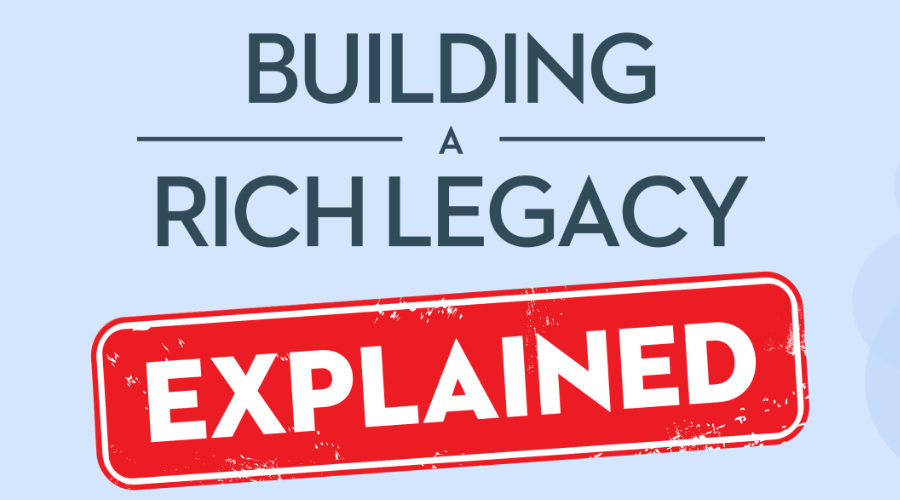Notice of Security Interest Scams (NOSI scams) have been costing Canadians tens of thousands of dollars, and the NOSI scam artists are often targeting retirees. NOSI is a fairly new and particularly costly scam that quickly became prevalent in Canada, to the point that the Ontario Minister Todd McCarthy has called it a “crisis”.
At HomeEquity Bank, we have taken a stance against NOSI scams by providing resources to help our customers recognize the signs of a NOSI scam artist and how to avoid falling victim to them. It’s important to us that Canadians 55 and up feel financially empowered and secure with regards to their biggest asset – their home.
The Ontario provincial government has also taken significant steps to combat NOSI schemes in Ontario. In June 2024, it passed a law that bans the registration of new NOSIs in respect of consumer goods, and deems existing NOSIs to be expired, with immediate effect.
In this article, we’ll explore all aspects of NOSI scams in Canada, including what is a NOSI, the difference between a NOSI vs. a lien, the NOSI meaning and how NOSI schemes often target retirees. We’ll also examine how the new Ontario NOSI law will protect the province’s retirees from NOSI scams in the future.
NOSI meaning
NOSI is short for notice of security interest. What is a NOSI’s purpose? Originally, it was meant to protect providers of in-home appliances, such as heaters and air conditioning units, from customers who fell behind on payments.
These units, which become a part of the home, can be registered on the title of the property if they are not purchased outright (for example, in leasing or rent-to-own situations).
The original intention of a NOSI was to ensure that the suppliers of these units would be paid for the product that they were leasing or selling.
NOSIs in Ontario: positive news for homeowners
On June 5, 2024, the Ontario government passed Bill 200, the Homeowner Protection Act, 2024. This crucial legislation will protect retirees and other homeowners from NOSI scams in the province, because it has effectively banned new NOSIs in respect of consumer goods from being registered and has deemed existing NOSIs to be expired, with immediate effect (they will all be removed from the land registry).
The goal of this new law is to prevent NOSIs from being used to scam unsuspecting homeowners out of thousands of dollars. While this only applies to Ontario at the moment, the hope is that other provinces will follow suit.
The new law, which received cross-party support, will provide much-needed protection to Ontario homeowners, particularly to those 55+, who are often targeted specifically by scammers.
NOSI vs lien
A notice of security interest is similar to a lien in that it’s registered against the title of the property. However, it doesn’t allow the holder to receive money from the sale of the property to pay off the debt, which is the case with a lien.
Instead, a notice of security interest is simply a notice to interested buyers of the property (or financial institutions), informing them that the home has this security tied to it. It’s often only when they try to sell their property (or refinance it) that the victims of NOSI scams become aware that there is a NOSI attached to their home.
The new homebuyer or financial institution providing the refinance will typically insist that the notice of security interest is discharged (paid off) before going through with the purchase or refinance.
How NOSI scams work
NOSI scam artists use a notice of security interest to force their victims to pay outrageous sums of money for their HVAC, air conditioning or other fixtures. Let’s look at a case study of how NOSI scams in Canada work.
NOSI Example
Hilary and John were persuaded to buy an air conditioning unit from a door-to-door salesperson. They persuaded the couple to lease the unit, which they said was worth $7,000.
Hilary and John signed the agreement without realizing that hidden among the fine print was an agreement to place a notice of security interest on their home. The salesperson didn’t mention this to the couple, and they were completely unaware of what they’d signed up for.
Three years later, when they decided to sell their home, they discovered that not only was there a NOSI on their home, but they had to pay $30,000 to the company to discharge the notice. The company justified this high amount by saying that it included the interest for the following 20 years.
Because the couple didn’t have the time or resources to take the company to court to fight this unfair NOSI, they paid the $30,000 so they could sell their home.
Recent NOSI scams in Canada include that of Karl Hoffman, who had a total of 11 separate NOSIs placed against his home, for home equipment that he didn’t want or need.
Linda Palmieri’s in-laws were victims of a NOSI scam and had 12 NOSIs placed against their home. Their names and identities were also distributed to other fraudulent companies to try and take advantage of them.
Abel Cheung of Ottawa was forced to pay $11,000 to the company that provided him with a water filter unit after he discovered that it had placed a NOSI on his home. This discovery only came about when he applied to refinance his home, and his bank wouldn’t lend him the money until the NOSI was paid off. Abel felt forced to pay the $11,000 to allow the refinance to go through, even though the water filter unit was worth far less.
What is a NOSI scammer’s preferred victim?
NOSI scammers typically target people whom they feel they can easily confuse and trick into signing documents they don’t understand, usually for products they don’t need.
For this reason, they often target low-income, vulnerable older adults, new Canadians whose grasp of English is not so good and people who have cognitive difficulties. These scammers often return many times to get the victim to sign up for more products that result in NOSIs.
In some instances, these NOSI scams go even further; the scam artist will trick the homeowner into taking out a mortgage to pay off all of the outstanding NOSI debt (which can often be for hundreds of thousands of dollars), charging interest rates as high as 25 per cent. Sometimes, the homeowners default on the mortgage and are forced to sell their home to pay off the debt.
How do I know if I have a NOSI on my home?
Unfortunately, most people only find out about the NOSI when they try to sell their home or refinance it. The only other way to find out is to pay a property lawyer to carry out a search on the title of the property to find out if there is a NOSI attached to it.
What is a NOSI scammer’s typical approach?
NOSI scammers usually turn up at their victims’ homes uninvited, posing as legitimate appliance company representatives. They often offer deals that don’t exist (such as rebates to pay for free renovations) to persuade their victims to sign up. Once the victim signs up for one appliance, the scammers will often return to try and get them to sign up for more, each time applying a new NOSI to their property.
How to identify NOSI scams
NOSI scammers typically approach their victims with unsolicited offers of home improvements or appliances. They use extremely high-pressure tactics to get their victims to sign up and have extremely complex contracts that have the details of the NOSI buried in the fine print.
There are several steps you can take to avoid becoming the victim of a NOSI scam:
- Don’t answer the door to anyone you weren’t expecting.
- Never sign a contract with someone who appears at your door without an appointment.
- If you do need an appliance or renovation work, only use a company recommended to you or one that has good ratings with the Better Business Bureau.
- Don’t sign any contracts without consulting a trusted friend, family member or lawyer.
- If you feel that you were pressured into signing a contract, you have 10 days to cancel it for no reason.
How to report NOSI scams
If you think you may have become a victim of a NOSI scam, or know someone who has, you should contact your local police department and report it to them. You can also report it to the Canadian Anti-Fraud Centre via its website, or call the organization directly at 1-888-495-8501.
If you need legal advice, you could contact a lawyer or one of the following organizations:
HomeEquity Bank’s commitment to protecting homeowners
We have been helping Canadians 55 and older live their lives confidently for 35+ years. It’s crucial for us as a bank to do what we can to help mitigate potential financial harm to our customers, including NOSI scams and other fraudulent liens.
According to data from Ipsos, 91 per cent of Canadians aged 55-plus feel that they are more vulnerable to fraud, with over half saying they have been a target for fraud. Given that NOSI and other scammers tend to target older adults, we feel that it’s crucial that we help our customers understand how these scams work and how to avoid becoming a victim.
In the face of rising door-to-door scams targeting Canadian homeowners aged 55+, we hosted a webinar with FCT Canada to empower this group with knowledge to outsmart scammers, safeguard assets and practical solutions with actionable strategies to make an immediate impact. We also developed materials and online resources that educate our customers on the resources available to them so they can make sound financial decisions.
We continuously train our people to not only understand and meet our customers’ needs but predict and proactively assist or intervene when necessary. Trainings include:
- CHIP Hero training with specialized course materials to help employees fully understand the CBA Seniors Code and its principles
- How to spot financial abuse and scams
- How to communicate effectively with all customers regardless of banking acumen
You can read our articles on common scams targeting elderly Canadians and emerging scams targeting the elderly; they provide details of the latest scams currently being carried out in Canada, how to recognize them and strategies for protecting yourself from them.
We’re committed to helping our customers (Canadian homeowners aged 55-plus) stay in the home they love. We do this through providing the CHIP Reverse Mortgage, which allows our customers to cash in up to 55 per cent of the value of their home, tax-free, so that they can afford to age in the home they love.
You can find out how much you could qualify for with a CHIP Reverse Mortgage by calling us at 1-866-522-2447 or by using our reverse mortgage calculator.































